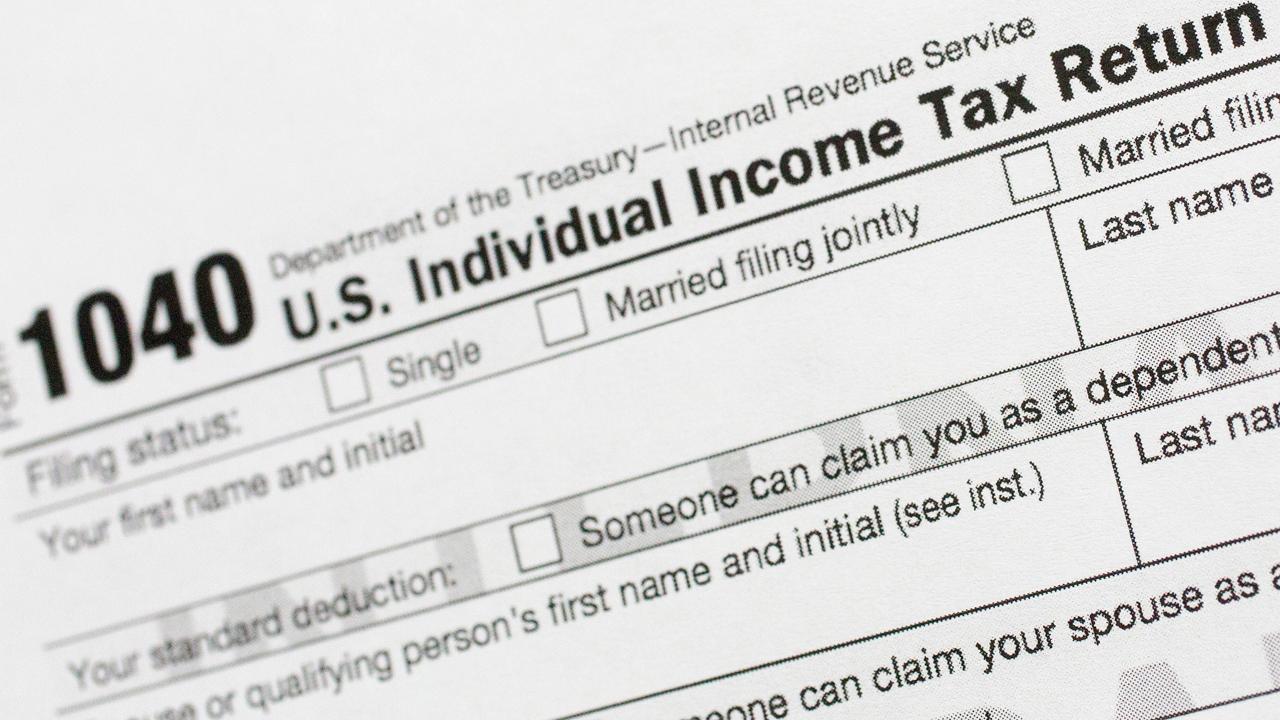The IRS wants taxpayers to claim $1.5B in unclaimed refunds -- but there's less than 1 week to do it
Make sure you claim your refund if you're owed it
In 2018, the average tax refund was a whopping $2,881. While not everyone gets back such a big amount, the majority of taxpayers do get refunds and this money can be used for important financial goals such as investing, paying down debt, or shoring up your emergency fund.
JULY 15 TAX FILING DEADLINE: EVERYTHING YOU NEED TO KNOW
Unfortunately, some people have outstanding refunds but haven't actually gotten their money back yet. In fact, according to the IRS, there are $1.5 billion worth of unclaimed refunds from the 2016 tax year. And the bad news is, if that money isn't claimed by July 15, 2020, it's gone for good.
Make sure you claim your refund if you're owed it
When you're owed a tax refund, you usually have to submit forms to the IRS to let the agency know and to claim your cash. While the IRS can create a substitute tax return for you if you don't file one, they may not know about deductions and credits you're entitled to, so may not know you're due a refund unless you tell them -- especially if you're entitled to the Earned Income Tax Credit. And if you're owed a refund and need to file a return to get it, you have just three years from the tax deadline to do this or the IRS doesn't have to send you your money.
JULY 15 TAX FILING DEADLINE: A LOOK AT IRS PENALTIES
Ordinarily, that would mean that taxpayers would be out of luck for the 2016 tax year. The original tax deadline was April 15, 2017, meaning that the three-year window would normally have closed three months ago. However, the IRS gave a three-month extension of time.
Even so, around 1.4 million taxpayers who are owed refunds for the 2016 tax year didn't file their federal tax returns to claim them. The total value of these unclaimed refunds adds up to around $1.5 billion -- and if taxpayers don't submit their forms by July 15, 2020, their time will be up and the money will become the property of the Treasury.
To claim your unclaimed refund money from the 2016 tax year, you'll need to complete a 1040 form for 2016 and the form must be postmarked by July 15, 2020. You can find prior year forms, including the 2016 Forms 1040, 1040-A, and 1040-EZ on the IRS Forms and Publications Page or can call 800-TAX-FORM to obtain a copy. And if you need other paperwork or information to complete your forms, you can request copies of it by submitting Form 4506-T, Request for Transcript of Tax Return.
IRS MAY GRANT ADDITIONAL CORONAVIRUS-RELATED TAX PENALTY RELIEF, EXPERTS SAY
Unfortunately, your past-due returns will need to be mailed in to the IRS -- you can't file them online. But the good news is that there's no penalty for filing late if you're owed a refund, so you can send your forms in anytime over the next few days to make sure you get the money you're owed by the IRS. Just make sure they're mailed by the 15th.
Avoiding tax refunds in the future can be a better bet
Although it's nice to get a lump sum of money from the IRS, waiting for a refund until after you file tax returns can be a pain -- and you're giving the IRS an interest-free loan if you have too much taken out of your paychecks. If you can, it's often a better option to set up your withholding so you get more money in each paycheck and don't get a refund at tax time. You can do this by changing your information with your employer so the correct amount is withheld from your check.
GET FOX BUSINESS ON THE GO BY CLICKING HERE
This approach won't necessarily work for everyone, but it's a good way to avoid the IRS owing you money so you can make use of your cash as it comes in. Of course, you do want to make sure you're paying in most of your taxes as you earn income to avoid penalties, but this IRS withholding calculator can help you make sure you're getting the right amount taken from your checks instead of too much.




















